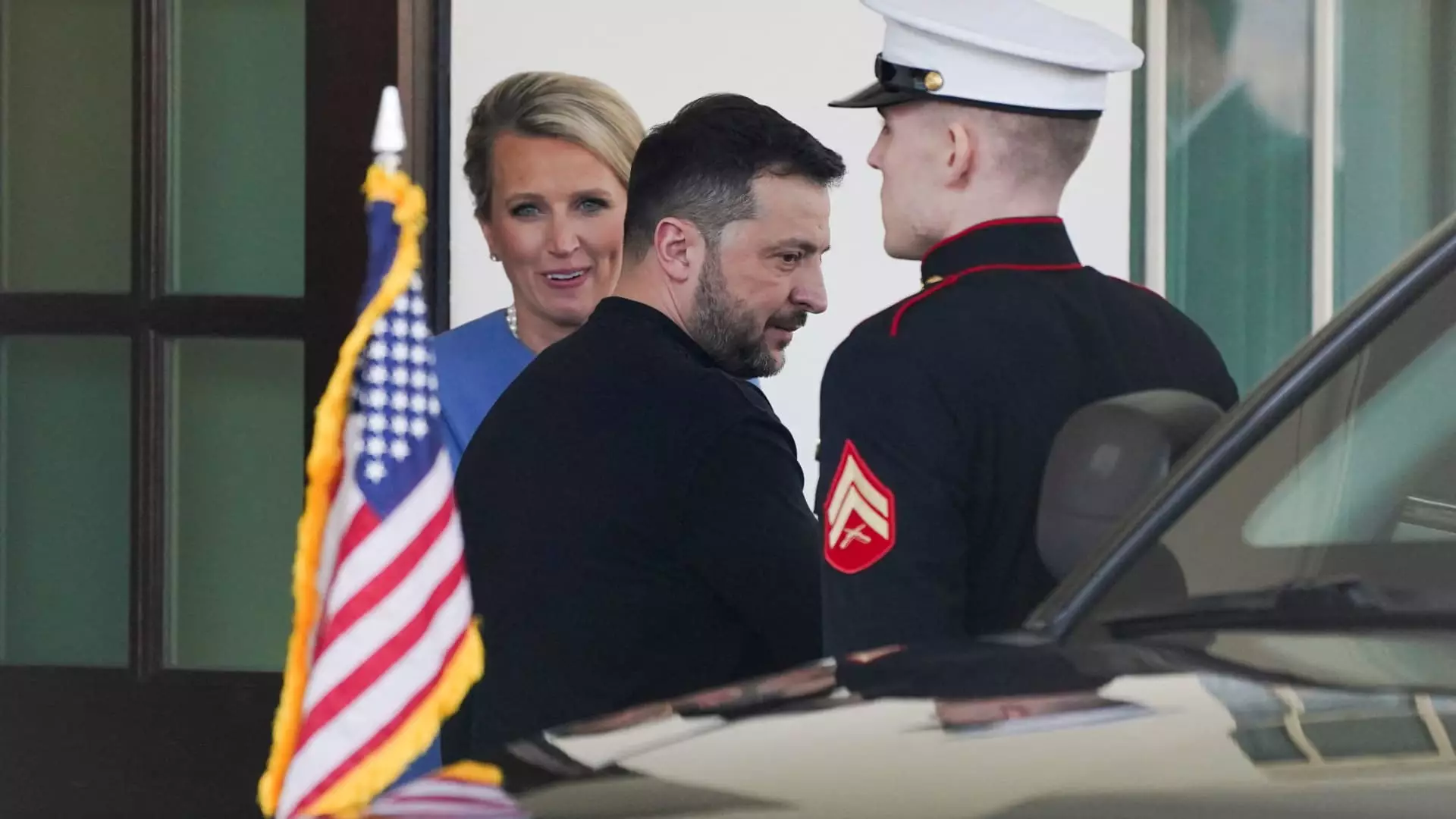In a pivotal moment that could redefine the geopolitics of Eastern Europe, Ukrainian President Volodymyr Zelenskyy concluded his visit to the United States with a stark reminder of the complexities inherent in international negotiations. The discussions with President Donald Trump at the White House ended abruptly, revealing underlying tensions not only in U.S.-Ukraine relations but also in broader global diplomacy. What could have been a significant step toward peace in Ukraine instead culminated in a public display of frustration and disappointment, prompting many to wonder about the ramifications on both sides.
Failed Negotiations and Uncertain Peace Efforts
The talks focused on vital topics, including the potential access of U.S. companies to Ukraine’s rich deposits of rare earth minerals. This arrangement was envisioned as a means to bolster Ukraine’s economy while simultaneously reducing dependency on Russian resources. However, the anticipated signing of this minerals deal did not materialize during Zelenskyy’s visit, casting doubt on whether economic cooperation could replace the urgent need for a peaceful resolution to the ongoing conflict that initiated with Russia’s invasion of Ukraine three years ago. As Zelenskyy departed the Oval Office without making any commitments, it became evident that both leaders have starkly differing perceptions regarding the path toward peace.
Intriguingly, the fallout from this diplomatic encounter underscored the fragile nature of communication between the two nations. Zelenskyy did not answer questions posed by the media, which left observers speculating about the silent weight of his thoughts regarding the potential collapse of peace talks. The abrupt cancellation of a joint press conference further fueled accusations of a communication breakdown not only between Ukraine and the United States but also among allies in the ongoing struggle against Russian aggression. Trump’s subsequent social media remarks indicated a deepening chasm; he suggested that Zelenskyy was not adequately prepared for negotiations when the stakes involve U.S. support, hinting at a transactional perspective that may not resonate well in Ukraine.
What emerges from this interaction is a curious observation about American influence in international conflicts. Trump’s comments suggested pressure toward a peace agreement that many would argue should not be used as a tactical advantage in negotiations. His assertion that Zelenskyy “disrespected” the United States while in its “cherished Oval Office” raises questions about expectations in diplomatic behavior and suggests a need for mutual respect to achieve a viable resolution. Such criticisms could inadvertently alienate Ukraine in its quest for peace while also complicating U.S. credibility as a mediator in foreign disputes.
The Future of U.S.-Ukraine Relations
As the dust settles on this tense meeting, Zelenskyy’s later tweet thanking the American people and leadership highlights a continued commitment to the relationship, suggesting optimism for future dialogue. However, the tone of Trump’s reflections casts doubts on the U.S.’s willingness to engage without perceiving the partnership as advantageous. Moving forward, how the Ukraine president navigates this turbulent diplomatic landscape will be crucial. His administration must balance the pursuit of peace with an acknowledgment of the nuances involved in international relations—nuances that often escape the comprehension of political leaders caught up in a whirlwind of negotiation.
Ultimately, as the world watches, it becomes clear that for lasting peace to take root, both leaders must recalibrate their approaches. It is not merely a question of strategic gains, but rather a deeply human endeavor to stabilize a nation ravaged by conflict. Only through transparency, respect, and genuine dialogue can the fragile promise of peace truly begin to take hold.


Leave a Reply